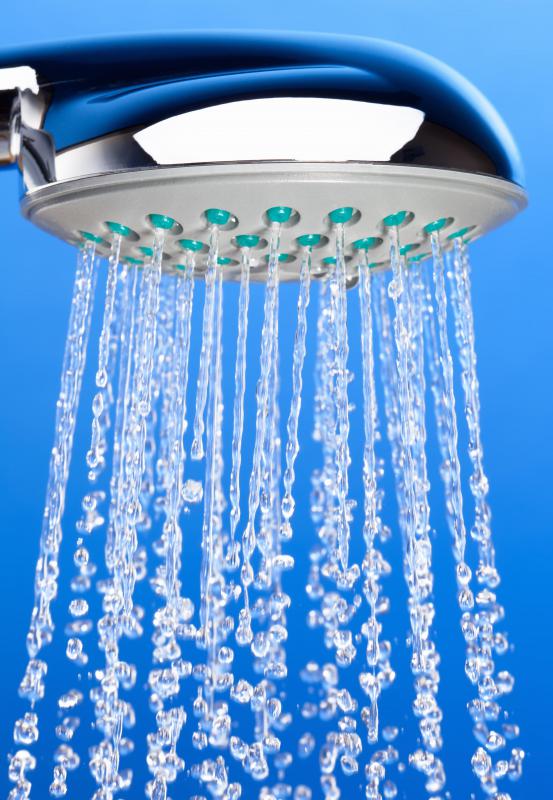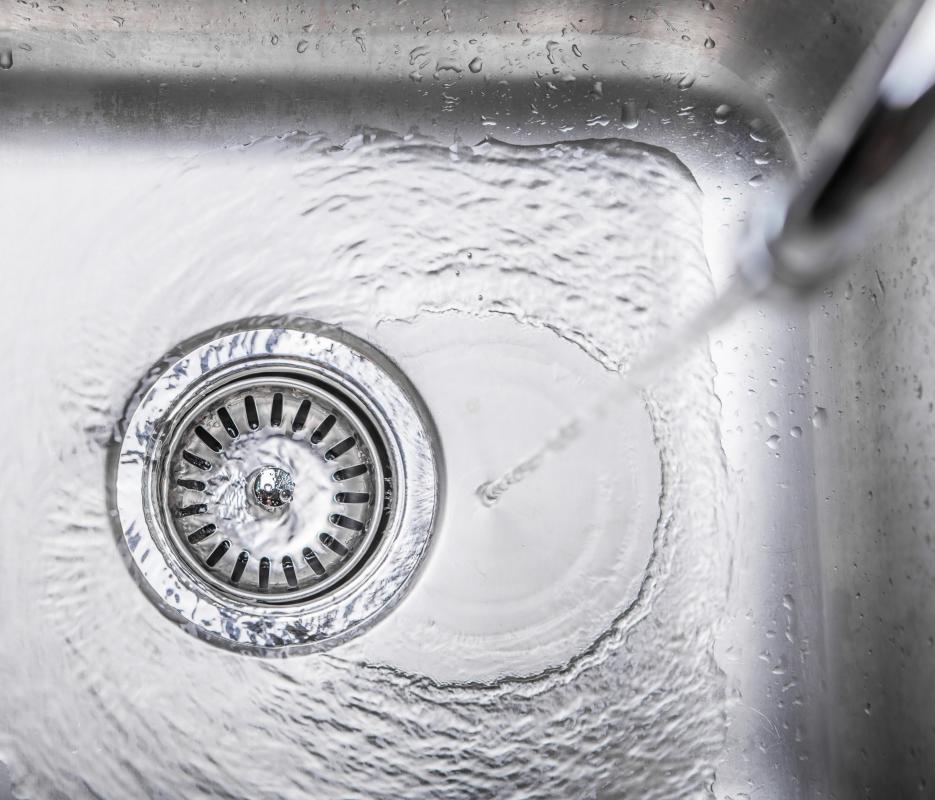At WiseGEEK, we're committed to delivering accurate, trustworthy information. Our expert-authored content is rigorously fact-checked and sourced from credible authorities. Discover how we uphold the highest standards in providing you with reliable knowledge.
What are the Different Types of Water Softeners?
Water softeners are different methods of reducing the amounts of magnesium and calcium found in water. Some water softeners also reduce both iron ions and manganese as well. These minerals are responsible for the experience of hard water, which most people find to be very undesirable, for a number of reasons. Hard water isn’t dangerous, or unhealthy, but it can cause additional headaches in keeping surfaces clean, and softening water alleviates these concerns.
The metal ions found in hard water react with soaps, making them lather less, and causing them to leave a visible ring on surfaces, such as that commonly found in bathtubs using hard water. Both calcium and magnesium also form deposits when hard water is used for extended periods of time. This can cause build up on things like metal pipes, metal boilers, and on the insides of tea kettles. When severe enough, this build-up can actually be destructive to equipment, because it can serve as a thermal insulator, leading to the possibility that metal equipment will overheat.

The most common household form of water softeners are ion-exchanging resin devices. There are three main types of water softeners, categorized based on what salt they use: sodium, potassium, or hydrogen. These water softeners have a bed of resin that water is passed through. The resin is negatively-charged, and so binds to the positively charged metal ions in the hard water. Specifically, univalent sodium, potassium, or hydrogen is used in the resin, and exchanges with the divalent magnesium and calcium ions. This type of exchange means that as magnesium and calcium is drawn out of the water, more sodium, potassium, or hydrogen is released into the water.

Over time, these types of water softeners will deplete, since they are releasing their sodium, potassium, or hydrogen molecules into water as it passes through. The resin can then be regenerated, by passing some sort of a brine through the resin. Depending on the type of resin, the brine used is different, with sodium chloride refreshing sodium resin, potassium chloride refreshing potassium resin, and hydrochloric acid refreshing hydrogen resin.

These brines can cause environmental problems if released in bulk after being used, so many regions require large water softening plants to recapture the brine to dispose of it properly. One side effect of resin water softeners is that the water can actually become quite sodium loaded if the water was very hard to begin with, with up to 250mg of sodium per liter added to very hard water during the softening process.

Water softeners can be regenerated in three different ways: by meter, on a timer, or manually. Meter regeneration functions by tracking how much water is being used. Usually when set up, a meter is based on how many people use the water, and how hard the water is. This is the most popular type of water softener, and also the most efficient. Timer regeneration works by regenerating on a set schedule, such as once a week. Timer systems are cheaper to set up than meter systems, but are much less efficient in their use of salts. Lastly, manual regeneration works simply by allowing the user to go in and regenerate the softener whenever it needs it, but without any sort of automated tracking. This type of softener is both cheap and efficient, but is only really viable when smaller amounts of water are being softened.
AS FEATURED ON:
AS FEATURED ON:

















Discussion Comments
just send it to third world countries.
We have a water softener at home and we load with salt water every 10 days which softens the material and comes out. This salt water eats off the brinks in the garden. Can you please suggest how to dispose this salt water?
Can we leave it in the drainage? Please help!!
Post your comments